19th and 20th September 2020 at Indira Gandhi Institute of Technology, Sarang
The Internet of things (IoT) is a system of interconnected computing devices, objects such as machine, animals or people that are provided with unique identifiers with the ability to transfer data over a network. Computing is being transformed to a model consisting of services that are commoditized and delivered in a manner similar to utilities such as water, electricity, gas, telephony, etc. In such a model, users access services based on their requirements without regard to where the services are hosted. Several computing paradigms have promised to deliver this utility-computing vision. Computing has emerged as one of the buzzwords in the IT industry and turned the vision of "computing utilities" into a reality. Several IT vendors have started offering computation, storage, and application hosting services, and provide coverage in several continents, supporting Service-Level Agreements (SLA) backed performance and uptime promises for their services. It leads to generates huge numbers of structure and unstructured data. Therefore, Enterprise and Big-Data applications need tools and platforms for their rapid construction and deployment on Clouds on-demand meeting user QoS requirements at lower price. This also helps in automation of the system in industry through Science and Technology and Engineering like; Instrumentation, IT, Mechatronic, Telecommunication, Electrical, among few others. However, by and large, companies fail to systematically collect, store, analyze and use such data to improve process efficiency or meet other goals. So, these data sets need to be analyzed using Machine learning concept that has experienced a boost in popularity among both academia and industry. This conference aims at providing an opportunity and platform to present and discuss recent advances in the field of IoT, Machine learning and Big data independently and also as a confluence of ideas.
The Conference will be held at the campus of Indira Gandhi Institute of Technology, Sarang, Dhenkanal, Odisha-759146. The venue can be reached both by road and train. The nearest railway station is Talcher road. The venue is about 140Kms from the state capital Bhubaneswar.
Indira Gandhi Institute of Technology (IGIT), Sarang was established in 1982. IGIT Sarang offers Ph.D, PG, UG and Diploma programs in Engineering and Science. Most of the programmes were accredited in the year 2008 by the National Board of Accreditation of AICTE. The departments are greatly benefited by the expertise of faculties. Each department conducts annually at least one Conference / Seminar / Workshop for effective dissemination of state-of-art technologies and research findings for the benefit of teaching faculty and industries. The institute is extremely proud of its alumni, a considerable number of them being entrepreneurs or senior executives in industries both within India and abroad. The institution is located at Sarang, at the bank of river Brahmani , about 8 kms from Talcher and 120 kms from Bhubaneswar and is well communicated by bus and train . The climate is good and amusing at IGIT during July. The stay will be very much pleasant during this period.
Abstract: The ubiquitous IEEE 802.11 family of protocols has its genesis in the random access protocols of the early days of computer networks. The first protocols allowed for a peak bandwidth of 2Mbps. They have come a long way since then and Gbps rates are on the horizon. In the process, we also have an alphabet soup of variations. In this tutorial, we will trace the history of this protocol and understand the engineering choices that were made in designing them. We will also discuss the state of the art and the emerging standards and also see how they fit into the wireless world of 4G, 5G and beyond.
D.Manjunath received his BE from Mysore University, MS from IIT Madras and PhD from Rensselaer Polytechnic Institute in 1986, 1989 and 1993 respectively. He has been with the Electrical Engineering Department of IIT Bombay since July 1998 where he is now an Institute Chair Professor. He has previously worked in the Corporate R & D Center of General Electric in Scehenectady NY (1990), Computer and Information Sciences Department of the University of Delaware (1992-93), Computer Science Department, University of Toronto (1993-94) and the Department of Electrical Engineering of IIT Kanpur (1994-98). At IIT Bombay, he was Head of the Computer Centre during 2011-15. His research interests are in the general areas of communication networks and performance analysis. His recent research has concentrated on random networks with applications in wireless and sensor networks, network pricing and queue control. He is a recipient of the best paper award at ACM SIGMETRICS 2010. He is an associate editor of IEEE Transactions on Networking, Queueing Systems: Theory and Applications, and of Sadhana: The Proceedings of the Indian Academy of Sciences. He was TPC chair for COMSNETS 2011 and NCC 2015 and general chair for ACM MobiHoc 2013 and COMSNETS 2015. He is a coauthor of two textbooks, Communication Networking: An Analytical Approach (May 2004) and Wireless Networking (Apr 2008), both of which are published by Morgan-Kaufman Publishers.
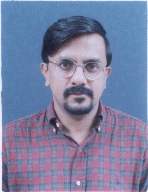
Abstract: Fog computing consists of modest capability fog nodes located close to users/data generation sources. These nodes are ideal for executing small interactive tasks with low latency requirements. Tasks that are larger and more latency tolerant may be executed at the cloud data center. In this talk, we discuss RT-SANE (Real-Time Security Aware scheduling on the Network Edge), a scheduling algorithm for real-time tasks on fog-cloud systems. RT-SANE supports both batch and interactive applications, taking account of their deadline and security constraints. RT-SANE chooses between a micro data center (in proximity to a user) and a cloud data center by taking account of network delay and security tags. We also discuss a fog computing based over-the-air (OTA) update algorithm for smart vehicles. We propose a mobility management algorithm that takes into account the mobility of smart vehicles. In order to reduce the number of handovers, an ILP formulation has also been proposed. Finally, we discuss a framework for repelling wild animals in the agricultural fields using fog computing.
Nitin Auluck received the B. E. degree from Gulbarga University in 1998 and PhD degree from the University of Cincinnati, USA in 2004. He was an assistant professor in the Department of Computer Science, Quincy University, Quincy, USA from 2004 to 2010. He has been with the CSE Department at IIT Ropar since 2010, where he is currently an Associate Professor. His research interests include fog computing, real-time systems, and parallel and distributed systems.
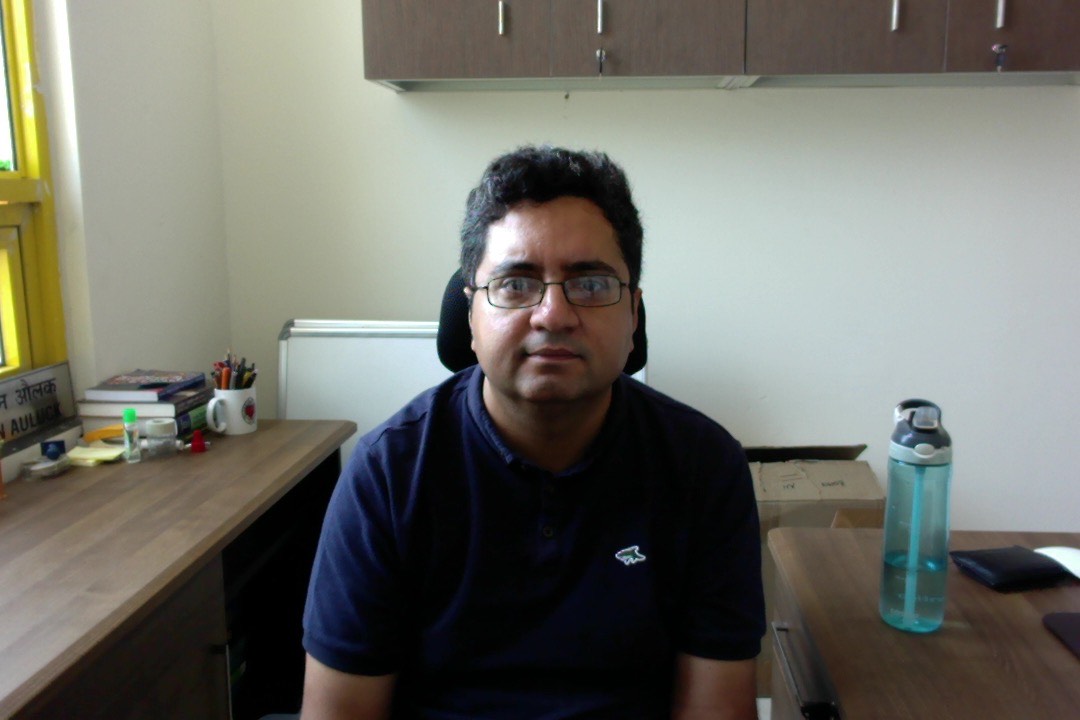
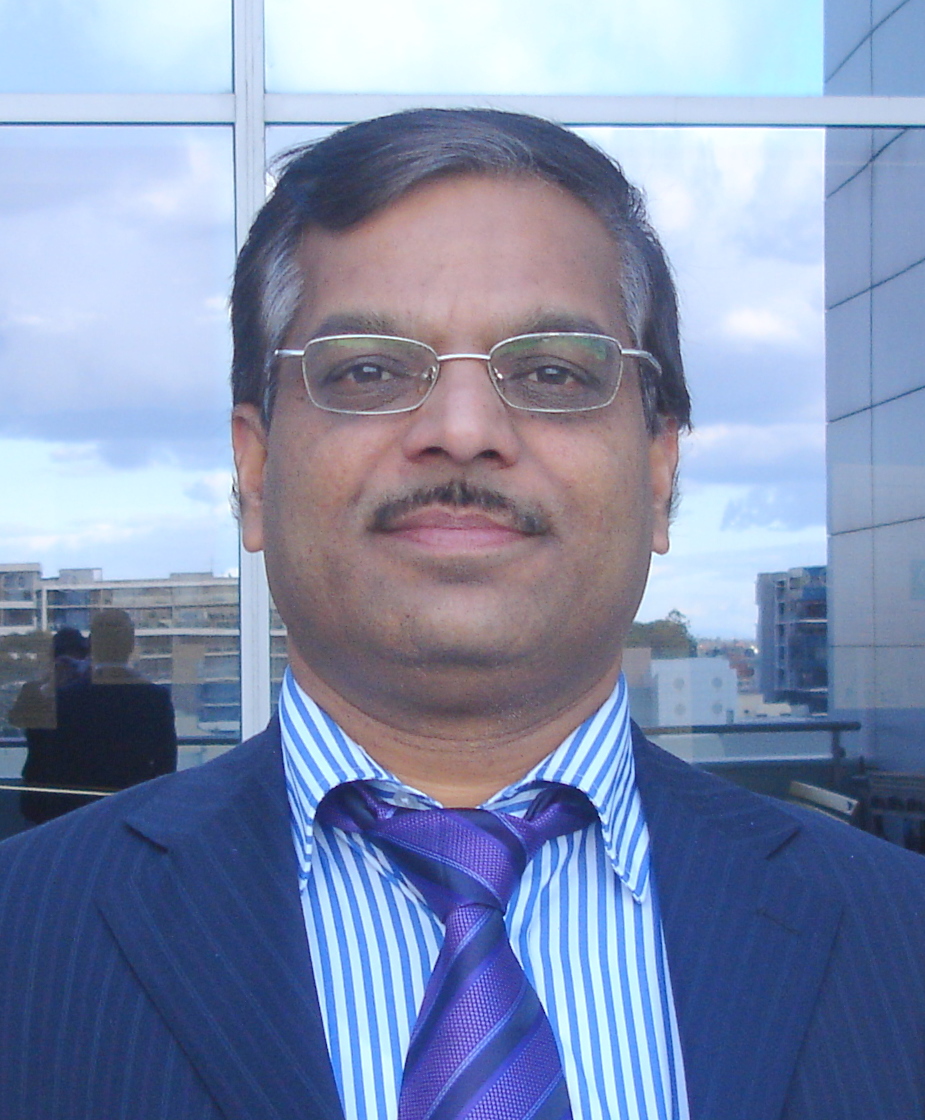
Dr. Rajkumar Buyya is a Redmond Barry Distinguished Professor and Director of the Cloud Computing and Distributed Systems (CLOUDS) Laboratory at the University of Melbourne, Australia. He is also serving as the founding CEO of Manjrasoft, a spin-off company of the University, commercializing its innovations in Cloud Computing. He served as a Future Fellow of the Australian Research Council during 2012-2016. He serving/served as Honorary/Visiting Professor for several elite Universities including Imperial College London (UK), University of Birmingham (UK), University of Hyderabad (India), and Tsinghua University (China). He has authored over 725 publications and seven text books including "Mastering Cloud Computing" published by McGraw Hill, China Machine Press, and Morgan Kaufmann for Indian, Chinese and international markets respectively. He also edited several books including "Cloud Computing: Principles and Paradigms" (Wiley Press, USA, Feb 2011). He is one of the highly cited authors in computer science and software engineering worldwide (h-index=137, g-index=304, 99,600+ citations). "A Scientometric Analysis of Cloud Computing Literature" by German scientists ranked Dr. Buyya as the World's Top-Cited (#1) Author and the World's Most-Productive (#1) Author in Cloud Computing. Dr. Buyya is recognized as a "Web of Science Highly Cited Researcher" for four consecutive years since 2016, IEEE Fellow, Scopus Researcher of the Year 2017 with Excellence in Innovative Research Award by Elsevier, and the "Best of the World", in Computing Systems field, by The Australian 2019 Research Review.
Md Atiqur Rahman Ahad, Senior Member, IEEE, is a Professor of Electrical & Electronic Engineering, University of Dhaka (DU). He is currently working as specially appointed Associate Professor at Osaka University, Japan. He works on computer vision, imaging, IoT, healthcare, etc. He did B.Sc.(honors) [1st class 1st position] & Masters [1st class 2nd position] from the Dept. of Applied Physics & Electronics, DU; Masters from the School of Computer Science & Engineering, University of New South Wales; and PhD from the Faculty of Engineering, Kyushu Institute of Technology [KIT]. He was awarded JSPS Postdoctoral Fellowship, prestigious UGC Award 2016, and a no. of awards/scholarships. He was a Visiting Researcher at KIT. He published 3 books (available in Springer), few Edited books, & a few book chapters. He has published 140+ journals and conference papers. He has received 20+ international awards in various conference/journal/society. Ahad was invited as keynote/invited speakers about 60 times in different conferences/universities. He has established several international MOU/collaborations (e.g., Clemson University, University of Hyogo, RCCIIT, Fukuoka Women University, Kyushu University, etc.).
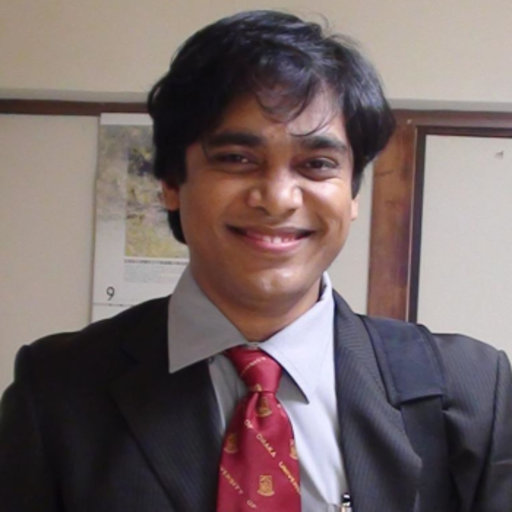

Prof. Yu-Dong Zhang received his BE in Information Sciences in 2004, and MPhil in Communication and Information Engineering in 2007, from Nanjing University of Aeronautics and Astronautics. He received the PhD degree in Signal and Information Processing from Southeast University in 2010. He worked as a postdoc from 2010 to 2012 with Columbia University, USA; and as an assistant research scientist from 2012 to 2013 with Research Foundation of Mental Hygiene (RFMH), USA. He served as a Full Professor from 2013 to 2017 with Nanjing Normal University, where he was the director and founder of Advanced Medical Image Processing Group in NJNU. Now he serves as Professor with Department of Informatics, University of Leicester, UK. His research interests include deep learning and medical image analysis. Prof. Zhang is the Fellow of IET (FIET), and Senior Members of IEEE and ACM. He was included in “Most Cited Chinese researchers (Computer Science)” by Elsevier from 2014 to 2018. He was the 2019 recipient of “Highly Cited Researcher” by Web of Science. He won “Emerald Citation of Excellence 2017” and “MDPI Top 10 Most Cited Papers 2015”. He was included in "Top Scientist" in Guide2Research. He is the author of over 200 peer-reviewed articles, including 16 “ESI Highly Cited Papers”, and 2 “ESI Hot Papers”. His citation reached 12318 in Google Scholar, and 7270 in Web of Science. He has conducted many successful industrial projects and academic grants from NSFC, NIH, Royal Society, EPSRC, MRC, and British Council.
Dr. Soodkhet is presently working as an Associate Professor at Suranaree University of Technology, Thailand. He is presently head of Data Storage Science and Technology Research Unit and head of Smart Innovative Energy Research Unit, Suranaree University of Technology, Thailand He has done is B.Engg in Industrial Engineering, M.Engg is Nuclear Technology and PhD in Material Science Engineering from University of New South Wales, Australia. He is the recipient of many awards that include Bernd Rode 2017 (Senior Researcher), ASEA-UNINET, Austria, the Graduate Excellence in Materials Science award, and few others. His research interests include wearable sensor applications, Characterization of piezoelectric, and Piezoelectric Energy harvesting He has worked in many funded research projects and a few of them are Thailand MED TECH Excellence Fund, Technology and Innovation-based Enterprise Development Fund, UK Newton Fund: the Royal Academy of Engineering and Office for Higher Education Coordination’s Industry Academia Partnership Programme, Thai Research Fund among many others. He has published extensively (around 100) in many reputed international journals and conferences.
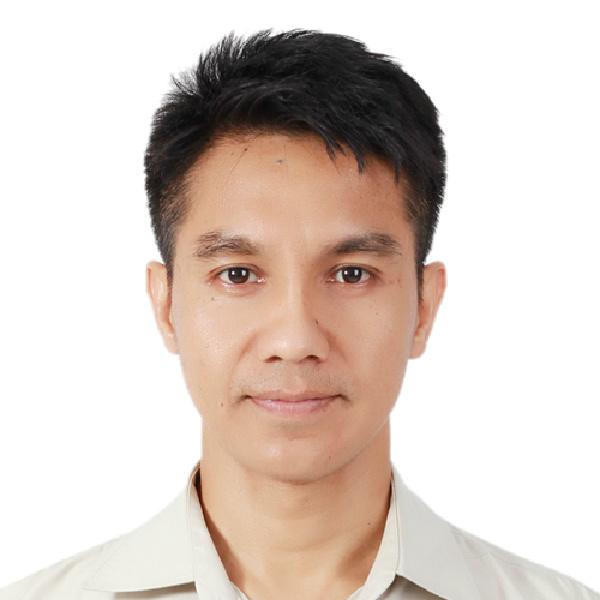
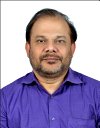
Dr. Siba Kumar Udgata is presently serving as a Professor of Computer Science at the AI Lab, School of Computer and information Sciences at University of Hyderabad. He also served as Director at Center for Modeling for Simulation and Design (CMSD), University of Hyderabad. He was a research fellow at International Institute for Software Technology, United Nations University (UNU/IIST), Macau. His main research interests include Wireless communication, IoT and Sensor Networks and Intelligent Algorithms. He has authored more than 100 research papers published in reputed international journals and conferences. He has worked as principal investigator in many Government of India (and other funding agencies) funded research projects mainly for the development of wireless sensor network applications, network security related applications and application of swarm intelligence techniques in the cognitive radio network domain. He has worked as a consultant to Tata Steel Ltd and Scientific Analysis Wing (SAG), DRDO, Govt. of India. He has been awarded with IBM SUR (Shared University Research) Award for research project, “Mobile and Sensor Network based Disaster Management System with emphasis on rescue management” He has around eight edited book volumes published by Springer and also recently coauthored a book entitled “Internet of Things and Sensor Network for COVID-19” published by Springer Nature publication house.
Aninda Bose is presently working as a Senior Publishing Editor with Springer Nature. Mr. Bose is part of the Global Acquisition Team at Springer Nature and responsible for acquisition of scientific content across the globe. He is responsible for acquisition of content in Interdisciplinary Applied Sciences. He has more than 25 years of industrial experience in marketing and different fields of publishing. Mr. Bose has completed Masters in Organic Chemistry from Delhi University and Masters in Marketing Research from Symbiosis Institute of Management Studies, Pune. Mr. Bose has delivered more than 135 invited talks on Scientific Writing and Publishing Ethics in reputed Universities, International Conferences and Author Workshops. He has published books for secondary level in Chemistry and is a member of American Chemical Society, USA.
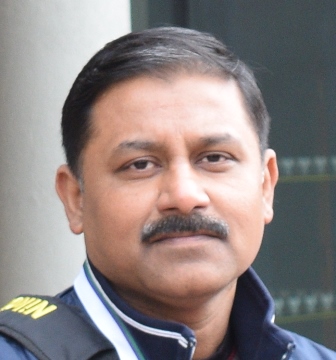
Technical papers describing original, previously unpublished research, not currently under review by another conference or journal, are solicited. The conference proceedings will be published in Springer book series “Lecture Notes in Networks and Systems” (https://www.springer.com/series/15179) . All the accepted and presented papers will be published in this series. (The books of this series are to be submitted to SCOPUS, ISI proceeding,Google Scholar and Springer Link.)
Technical papers describing original, previously unpublished research, not currently
under
review by another conference or journal, are solicited. The conference
proceedings will be published in Springer book series “Lecture
Notes in Networks and
Systems”
(https://www.springer.com/series/15179).
All the accepted and presented papers will be published in this series. (The books of this series are
to be submitted to SCOPUS, ISI proceeding,Google Scholar and Springer Link.)
The papers should be in the
following formats:
LaTex Format
Word Format
Page limit for Camera Ready
papers
is 10 pages (With regular registration fees).
Extra page charge: INR 1000
per
page
(for Indian authors) and USD 20 per page (for foreign authors).
All the submission will be
made
though Easychair on the following link:
Submission
Link
Interested participants may register their names using the form at the bottom of the page. The confirmation regarding participation will be sent through e-mail. To ensure publication of a paper in the Proceedings, at least one author has to register by submitting a normal registration fee within deadline as indicated below.
| Category | Registration Fees |
|---|---|
| Foreign Delegates (Research Scholar/ Students) |
USD 100 |
| Foreign Delegates (Academicians/ Scientist) |
USD 125 |
| Research Scholar/ Students | INR 3000 |
| Academicians/ Scientist | INR 4000 |
| Industry Experts | INR 6000 |
| Listeners (Including Pre-Conference Tutorial) (The e-Certificate will be provided at the end of conference) |
INR 300 |
Apart from the registration for publication in springer conference proceeding, presentation of paper in online mode is mandatory.
Will be updated soon
The broad scope of the conference themes include but not limited to the following:
For any Queries, please mail us at:
[email protected]
Contact Address:
Prof. (Dr.) Srinivas Sethi
IGIT, Sarang,
Dhenkanal,
Odisha, 759146
📞 8895265366